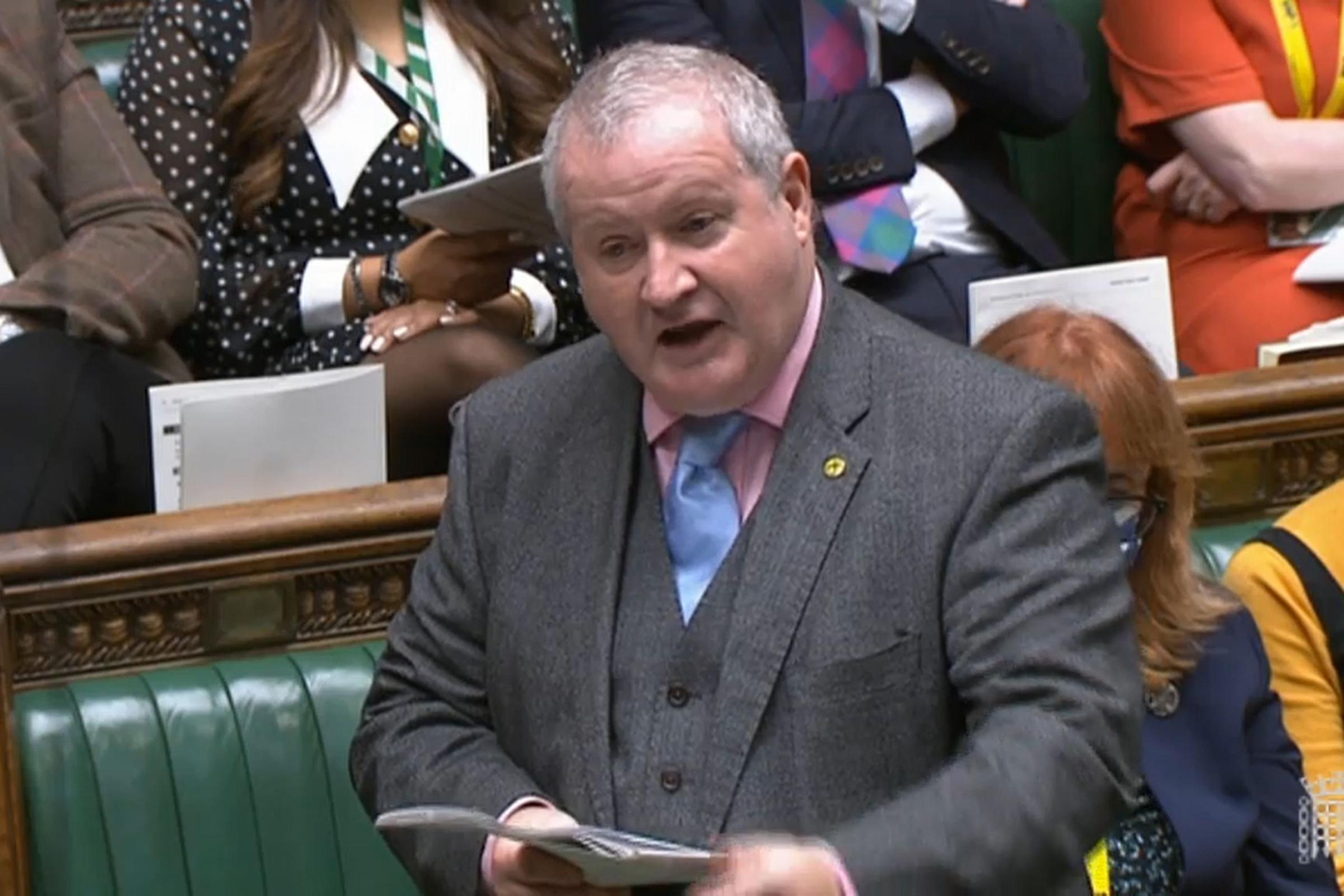
IAN Blackford has said he “loves” working at Westminster and talked of his friendships with Unionist MPs.
The SNP’s Westminster leader said that, despite the SNP’s ethos in Westminster being to “settle up, not settle down”, he had urged his party colleagues not to disrespect the Commons.
Speaking at the Fringe, he told an audience that he was firm friends with several politicians from other parties, including a Tory peer and the leader of the DUP.
Blackford said that his cross-party friendships were not unlike chatting to fans of other football teams.
He said: “I'm a Hibs fan. People support different teams. Should I not get on with somebody because they support a different football team? It’s daft.”
On the topic of Scotland’s battle to win independence, he said the Scottish Government would hold a second referendum “one way or another”, whether that was with Westminster’s consent, victory in the Supreme Court or through a General Election as a de facto vote on the issue.
And Blackford has stressed that both the SNP and Scottish Greens stood on an election manifesto of holding a referendum.
He said: “There’s an independence majority, and Westminster should recognise that it’s the right of those who live in Scotland to have that debate.
"It’s not a good look for any prime minister in Westminster to keep saying, ‘No, you can’t’.
"That is a denial of democracy, so of course on the basis of that we’re having to go to the Supreme Court, let’s see what happens.
"I hope that there is an opinion in our favour, and then we can get on and have that debate.”
He added: "One way or the other, that referendum will happen. And I have to say, I’m pretty confident not only will that debate happen, but Scotland will vote to become an independent country.”
Touching on his home constituency of Ross, Skye and Lochaber, he said: “First and foremost the constituents expect you to represent them.
“And I will admit, for someone who wanted Scotland to be independent, for us to be out of Westminster, I would say to colleagues, never disrespect the place.
“There is that sense.. you’re in a place where you’ve a job to do.
“And I love the chamber, I love the debate, I love the cut and thrust that you have with those in other parties.”
Blackford went on to say that just because someone belongs to another party, that doesn’t mean they won’t have good ideas and that “you’ve got to be open to having a debate about how you change Scotland for the better”.
He added: “And that's one of the things that I do hope that we see, particularly in the independence debate, that it's respectful, and we allow people to express opinions about how they can change this country for the better.”
Asked if political opponents could be friends, Blackford said: “Yes. Of course you can. Because I think you've got a responsibility to put your case.
“And I will often say that when you come over the chamber, that you leave that behind because we're all human beings.
“Most people come into politics because they have a calling to improve public life.
“And I might disagree vehemently with Jacob Rees-Mogg, Iain Duncan Smith, but it doesn't mean that I will disrespect them.
“They have, perhaps, different values that I might have.
“There are times when you do work together.
“Before I was SNP Westminster leader, I worked with the likes of Margaret Hodge on the Labour side and Dominic Raab at the time, to make sure that we got the Magnitsky legislation on the statute so that we could take action against those that are guilty of human rights abuses.
“When I was the SNP pensions spokesperson, I developed quite a strong friendship with the Tory pensions minister Richard Harrington, who's now gone into the House of Lords, and I've got no problem saying to people that Richard is a very good friend of mine.”
He also spoke of how Sir, Jeffrey Donaldson, one of the most fervent Unionists in the country and leader of the DUP, had named him as one of two friends from other parties in a Belfast Telegraph article.
He said: “He made the point that we have different political views, but we get along.
“Why shouldn't people do that? Why would you actually not have any kind of relationship with someone just because they have a different political view?
“We want people that are political opponents to be able to treat each other in a civil manner.”







